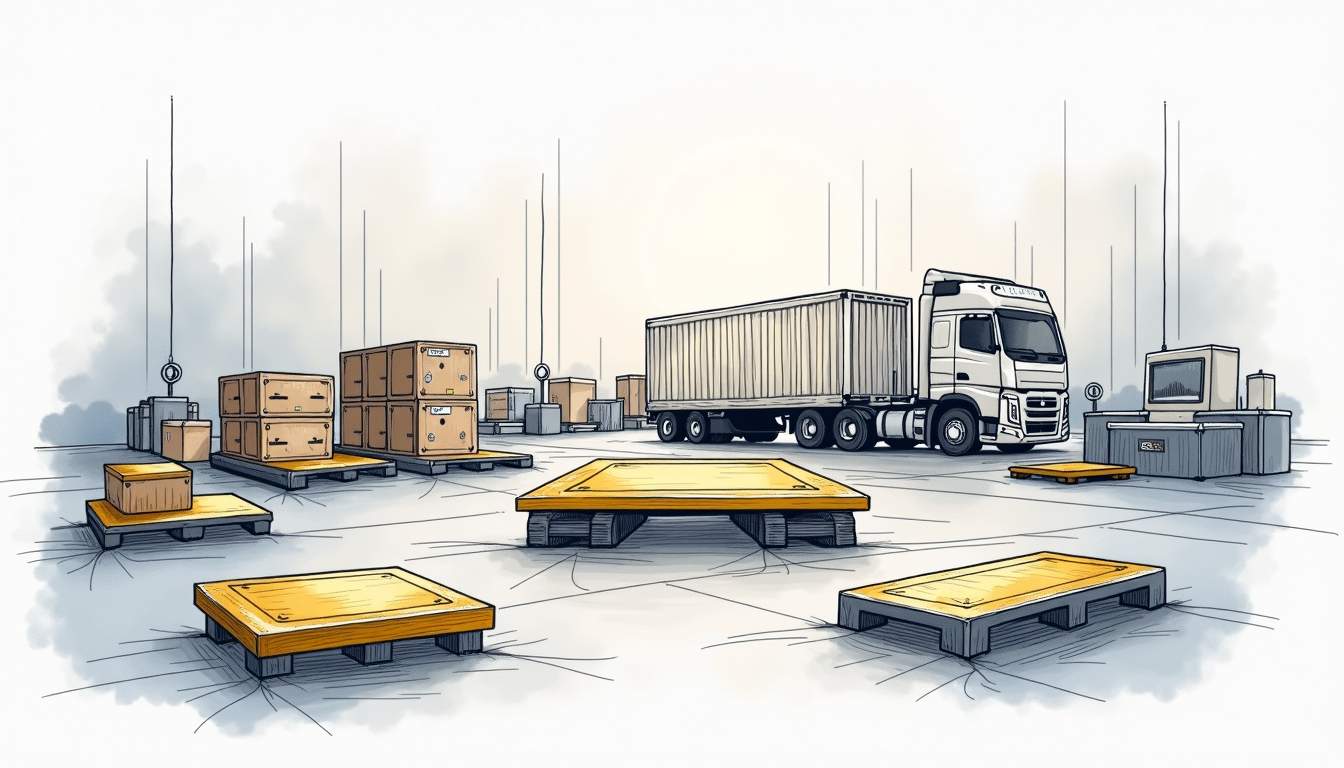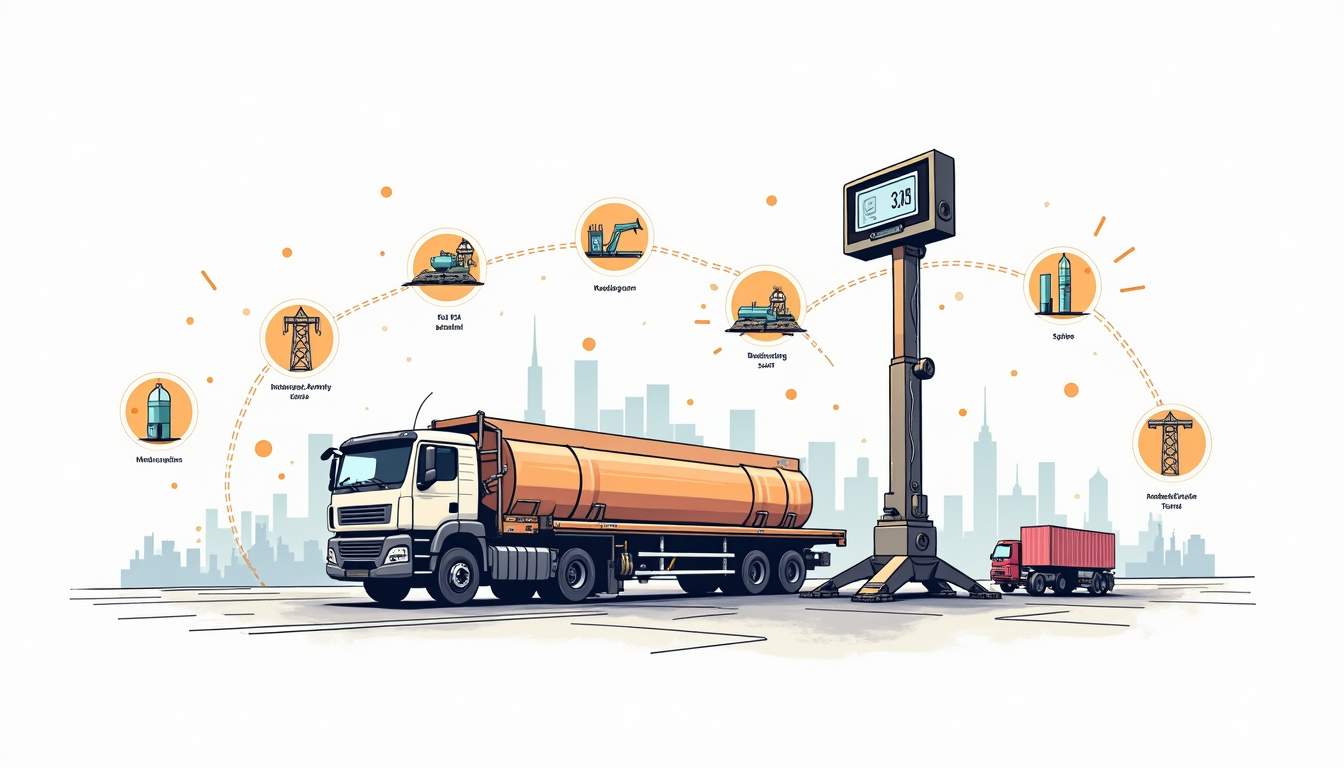In the fast-paced world of manufacturing and warehousing, precision and reliability are paramount. Accurate weighing solutions not only ensure product quality but also optimize inventory management, streamline operations, and maintain compliance with industry standards. Heavy-duty industrial weighing equipment plays a crucial role in meeting these demands, offering robust performance tailored to the rigorous environments typical of manufacturing plants and warehouses.
The Importance of Heavy-Duty Weighing in Industrial Settings
Manufacturing and warehousing environments often involve handling large volumes of materials, ranging from raw ingredients to finished goods. The accuracy of weight measurements directly impacts production efficiency, cost control, and safety. For instance, in manufacturing, precise weighing ensures that formulations and mixes meet exact specifications, which is critical for product consistency and quality assurance.
In warehousing, accurate weight data supports inventory management by providing real-time insights into stock levels and facilitating efficient order fulfillment. Moreover, compliance with shipping regulations often requires accurate weight documentation to avoid penalties and ensure safe transportation.
Heavy-duty industrial weighing systems are designed to withstand harsh conditions such as dust, moisture, temperature fluctuations, and heavy usage. Their durability and precision make them indispensable tools in maintaining operational excellence.
In addition to their robustness, heavy-duty weighing systems often incorporate advanced technology, such as digital displays and connectivity features, which enhance user experience and data management. These systems can be integrated with warehouse management software, allowing for seamless data transfer and analysis. This integration not only streamlines operations but also provides valuable insights into trends and patterns, enabling businesses to make informed decisions regarding inventory and production processes. To explore a wide range of reliable solutions, you can visit Scales 4 U, a trusted company specializing in Agricultural Scales, Laboratory Scales, Retail Scales, Medical Scales, and Industrial Scales.
Furthermore, the implementation of heavy-duty weighing solutions can significantly contribute to sustainability efforts within industrial settings. By ensuring accurate measurements, companies can minimize waste and optimize resource utilization. For example, precise weighing in the batching process can reduce the excess of raw materials, leading to lower costs and less environmental impact. As industries increasingly focus on sustainable practices, the role of reliable weighing systems becomes even more critical in achieving operational goals while adhering to environmental standards.
Types of Heavy-Duty Industrial Weighing Equipment
Floor Scales
Floor scales are among the most common heavy-duty weighing solutions in industrial environments. These scales are typically installed flush with the floor, allowing forklifts and pallet jacks to easily place loads on the platform. Floor scales can handle weights ranging from a few hundred pounds to several tons, making them ideal for weighing pallets, drums, and large containers.

Constructed with rugged materials such as stainless steel or carbon steel, floor scales are built to endure heavy impacts and exposure to chemicals or moisture. Many models come equipped with load cells that provide precise measurements, even under challenging conditions. Additionally, advanced floor scales often feature integrated software that allows for data logging and reporting, enabling businesses to track inventory levels and optimize their supply chain processes. This capability not only enhances operational efficiency but also provides valuable insights into weight trends over time, which can be critical for compliance and quality assurance.
Bench Scales
Bench scales are compact yet powerful weighing devices suited for smaller components or packaging operations within manufacturing and warehousing. Their portability and ease of use make them a versatile choice for quality control checks and batching processes.
Despite their smaller size, heavy-duty bench scales are engineered to offer high accuracy and durability. They often feature stainless steel platforms and sealed electronics to resist dust and spills, ensuring longevity in demanding environments. Furthermore, many bench scales come with user-friendly interfaces that allow operators to quickly switch between measurement units, such as pounds and kilograms, facilitating international shipping and compliance with various regulations. Some models also offer connectivity options, enabling integration with inventory management systems for real-time data exchange, which can significantly streamline operations and reduce the risk of human error during weighing tasks.
Crane Scales
Crane scales are specialized weighing devices designed to measure heavy loads suspended from cranes or hoists. These scales are essential in industries where materials are moved vertically, such as steel manufacturing, shipbuilding, or large-scale warehousing.
Equipped with robust hooks and wireless connectivity options, crane scales provide real-time weight data without interrupting workflow. Their ability to handle extremely heavy loads with precision enhances safety by preventing overloading and structural damage. Additionally, many crane scales are designed with features such as overload protection and battery life indicators, ensuring they remain operational even in the most demanding conditions. Some advanced models also incorporate remote displays, allowing operators to monitor weights from a safe distance, thereby enhancing workplace safety and efficiency. This technology is particularly beneficial in environments where visibility is limited, ensuring that operators can make informed decisions without compromising safety.
Load Cells and Custom Weighing Systems
Load cells are the fundamental components of most industrial weighing systems. These sensors convert force into electrical signals, enabling accurate weight measurement. In many manufacturing setups, load cells are integrated into custom-built weighing systems tailored to specific processes.
Custom weighing solutions can include conveyor belt scales, hopper scales, or tank weighing systems, each designed to fit unique operational requirements. The flexibility of load cell technology allows manufacturers to optimize weighing accuracy and efficiency across diverse applications. Moreover, modern load cells often come equipped with advanced features such as temperature compensation and digital signal processing, which enhance their reliability in fluctuating environmental conditions. This adaptability is crucial for industries that require precise measurements for quality control, as even minor discrepancies can lead to significant operational issues. By investing in tailored weighing systems, businesses can not only improve their productivity but also ensure compliance with industry standards and regulations, ultimately leading to better customer satisfaction and trust.
Key Features to Consider When Choosing Industrial Weighing Solutions
Durability and Material Construction
Given the demanding nature of industrial environments, the durability of weighing equipment is a top priority. Materials like stainless steel offer corrosion resistance and ease of cleaning, which are vital in food processing or chemical manufacturing. Carbon steel, often coated for protection, provides a cost-effective alternative for less corrosive settings.

Additionally, the design should protect sensitive components from dust, moisture, and mechanical damage. Sealed load cells and rugged enclosures help maintain accuracy and extend the lifespan of the equipment.
Accuracy and Capacity
Balancing accuracy with capacity is essential. While heavy-duty scales must support large weights, they also need to provide precise measurements to ensure quality control and regulatory compliance. Selecting equipment with appropriate capacity ratings and fine resolution is crucial to meet operational needs.
Calibration capabilities and compliance with standards such as NTEP (National Type Evaluation Program) or OIML (International Organization of Legal Metrology) further guarantee reliable performance.
Integration and Connectivity
Modern industrial weighing solutions often feature digital interfaces and connectivity options, enabling seamless integration with manufacturing execution systems (MES), warehouse management systems (WMS), or enterprise resource planning (ERP) software. This connectivity facilitates automated data collection, reducing human error and improving traceability.
Wireless communication, Ethernet ports, and compatibility with barcode scanners or printers enhance operational flexibility and efficiency.
User Interface and Ease of Use
Intuitive user interfaces with clear displays and straightforward controls contribute to faster training and reduced operational errors. Features such as programmable tare functions, unit conversions, and data storage simplify daily tasks.
Some advanced systems offer touchscreen displays and multilingual support, catering to diverse workforces and complex workflows.
Applications of Heavy-Duty Weighing Solutions in Manufacturing & Warehousing
Raw Material Handling and Formulation
In manufacturing, accurate weighing of raw materials is critical for maintaining product quality and consistency. Heavy-duty scales ensure that ingredients are measured precisely according to batch recipes, minimizing waste and preventing costly errors.
Automated weighing systems integrated with batching controls can further enhance efficiency by reducing manual intervention and speeding up production cycles.
Inventory Management and Shipping
Warehouses rely on heavy-duty weighing equipment to verify shipment weights, manage stock levels, and facilitate order fulfillment. Accurate weight data helps prevent overloading transport vehicles and ensures compliance with shipping regulations.
Floor scales and pallet scales are commonly used to weigh incoming and outgoing goods, while integrated software systems update inventory records in real time.
Quality Control and Compliance
Quality assurance processes often include weight verification to detect product inconsistencies or packaging errors. Heavy-duty bench scales and checkweighers are valuable tools in these inspections, enabling quick and accurate assessments.
Compliance with industry standards and regulations often mandates documented proof of weight accuracy, making reliable weighing equipment essential for audits and certifications.
Bulk Material Handling
Industries dealing with bulk materials, such as mining, agriculture, or chemical manufacturing, benefit from specialized weighing solutions like hopper scales and conveyor belt scales. These systems provide continuous weight measurement, enabling precise control over material flow and inventory.
Heavy-duty load cells integrated into these systems withstand harsh conditions while delivering accurate data critical for process optimization.
Maintaining and Calibrating Industrial Weighing Equipment
Regular maintenance and calibration are vital to ensure the longevity and accuracy of heavy-duty weighing systems. Environmental factors such as temperature changes, dust accumulation, and mechanical wear can affect performance over time.
Routine inspections should include checking for physical damage, cleaning scale platforms, verifying load cell integrity, and testing electronic components. Calibration against certified weights or standards guarantees that measurements remain within acceptable tolerances.
Many manufacturers offer service contracts and calibration programs to support ongoing equipment reliability, helping businesses avoid costly downtime and maintain compliance.
Future Trends in Industrial Weighing Technology
The landscape of industrial weighing is evolving with advancements in digital technology and automation. Smart scales equipped with IoT (Internet of Things) capabilities enable real-time monitoring, predictive maintenance, and data analytics, empowering manufacturers and warehouse operators to make informed decisions.
Integration with AI-driven systems can further optimize production workflows by identifying patterns and suggesting improvements based on weight data. Wireless and mobile weighing solutions enhance flexibility, allowing operations to adapt quickly to changing demands.
As industries continue to embrace Industry 4.0 principles, heavy-duty industrial weighing solutions will play an increasingly central role in creating efficient, transparent, and responsive manufacturing and warehousing environments.
Conclusion
Heavy-duty industrial weighing solutions are indispensable assets in manufacturing and warehousing operations. Their ability to deliver precise, reliable measurements under demanding conditions supports quality control, inventory management, safety, and regulatory compliance.

Choosing the right weighing equipment involves considering factors such as durability, accuracy, capacity, and integration capabilities. By investing in robust and technologically advanced weighing systems, businesses can enhance operational efficiency, reduce costs, and maintain a competitive edge in today’s dynamic industrial landscape.
 WhatsApp Us Now
WhatsApp Us Now

